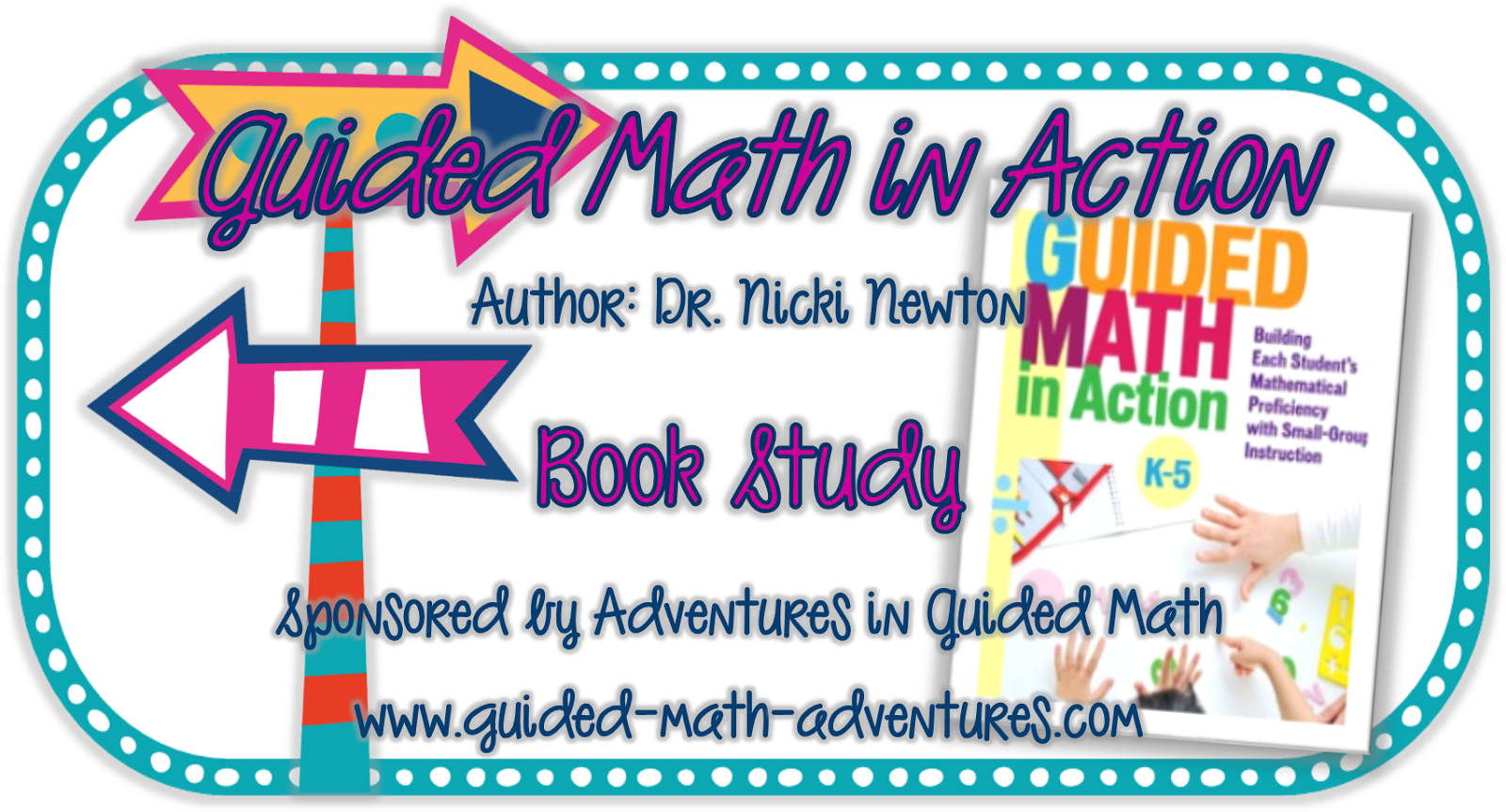Can you believe today is the last day of July???
I've been working feverishly to accomplish my summer goals. It seems like summer is slipping away--and I know it has already for some of you! CRAZY!
I'm glad you're back for the book study. We are closing in on this thing too...only two more chapters after this one!
Before we jump in to chapter seven, I played around with my lesson plan template. I started thinking that my whole group lesson would already be on my weekly lesson plans, so I didn't need to rewrite it on my math group plans. Instead I made a template that would work with one group for the entire week...saves some paper that way too! The other one is still available if you'd like it, click here. Click the picture to grab the new one.
This chapter takes a closer look at the five components that build mathematical proficiency.
Conceptual Understanding - students know what they are doing on a conceptual level, requires we have a toolkit available with different manipulatives and tools
Procedural Fluency - students understand how to do mathematical procedures and know when and how to use them to solve problems
Strategic Competence* - students are able to solve problems and represent their thinking
Adaptive Reasoning* - students can think logically about math and they can explain and justify what they are doing
Mathematical Disposition - includes confidence, flexibility, perseverance, interest, inventiveness, appreciation, reflection, and monitoring
Now, forgive me as I climb up on my soap box(es).
*Strategic Competence - "Strategic competence stresses that students don't just go straight for the answer but rather look for a "pathway" to find the solution... (pg. 90)."
I think it is great for us to teach students a variety of strategies and models to solve problems and give them opportunities to practice those strategies and models; however, as an adult mathematician I certainly don't try a bunch of models and strategies to solve problems. I have my favorites, and I use them. I expect my students will be the same way as they begin to develop problem-solving skills.
*In regards to adaptive reasoning, this is where I've seen the biggest complaints about the new Common Core math standards. It is as if some teachers are either not explaining this well to the students, who then are not able to explain it to their parents, or it is just completely misunderstood.
I've actually had people say the new Common Core math standards are bad because it doesn't matter if kids have the wrong answer as long as they can show you how they did it.
Um...what?
Someone is confused.
I can't believe any teacher would congratulate the thinking process of a wrong answer and do nothing to guide the student to the correct answer.
Instead, by having students show their thinking, we are able to understand where errors are taking place and help them correct it. Students "proving it" as discussed in the chapter are challenged to put their answers to the test. It does not mean we, as teachers, sit back and watch them conclude the wrong answer, congratulate them for their nice pictures, and send them on their merry way!
Climbing off my soap box now...so sorry!
1
Not enough! As I mentioned in the last chapter post, I sometimes felt that "concrete" step was a waste of time. Why? Because I understand math. I'm a numbers gal. However, after reading this book, I'm thinking about that conceptual understanding in a whole new way. I will definitely be doing more of this next year!
2
My students use a lot of numbers and pictures to model their thinking. I believe where I have lacked is in giving students a chance to share their thinking (in words). I'm looking forward to doing this in my guided math groups this year.
I'll leave you with my favorite quote from this chapter.
"Success breeds success and confidence (pg. 95)."
Head on over to visit the girls at Adventures in Guided Math. They have some great freebies for you!
If you missed the previous chapters, you can see them by clicking below.







Thanks for sharing your lesson plan template! Love the quote you picked out from the chapter--so true!
ReplyDeleteSmiles,
Sarah
Thanks, Sarah! That quote spoke to me because I want to really work on my kiddos working in the right zone--not too hard and not too easy.
DeleteCrystal